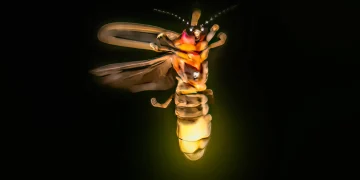CELEBRITIES and locals have banded together against “hideous” plans to change a much-loved shoreline.
The North Cornish coast sees millions of Brits visit every year and has appeared in several film and TV dramas including Poldark and Jamaica Inn.

Millions of Brits visit the Cornish coast every year[/caption]

Andrew Lincoln, The Walking Dead star, is opposed to the seaweed farm[/caption]

Doc Martin actor Martin Clunes claimed the ‘aquacultural’ plans were ‘nothing short of criminal’[/caption]
However, plans for an “aquaculture” scheme could change the layout of the popular British coast.
These plans have caused outrage within the local communities and have caught the attention of A-listers who have a special connection with the coast.
“Aquaculture” is breeding, raising and harvesting fish, shellfish, and aquatic plants.
It requires a lot of space and is said to have negative effects on the environment around them, according to Peta.
It’s a hideous plan, in a beautiful and special area
Martin Clunes
On the North Cornish coast, they hope to farm seaweed next to some of Britain’s most famous holiday spots.
These places include Padstow, home to Rick Stein’s gastro-empire, and Port Isaac, where ITV’s Doc Martin resides.
A scheme, the size of London’s Olympic Park, has already been approved by the Marine Management Organisation (MMO) without locals knowing anything about it, they claim.
This is despite residents and MPs managing to extend the consultation period on another scheme of similar size which had already gone through the planning stages.
Doc Martin’s actor Martin Clunes was furious at the “aquaculture” plans and claimed it was “nothing short of criminal”.
It’s disguised as some sort of environmental favour to the area and a source of local employment
Andrew Lincoln
He told the Mail Online: “It’s a hideous plan, in a beautiful and special area.”
Another celebrity opposed to the plans is The Walking Dead star and surfer, Andrew Lincoln.
The British actor was surprised by the scheme and how far along the plans were before residents protested it.
“It’s disguised as some sort of environmental favour to the area and a source of local employment,” he said.
Andrew added: “I’m under no illusion.”
The giant proposed seaweed farm off Port Quinn will combine around 250 acres (or 180 football pitches).
The farm would aim to harvest around 5,000 tonnes of seaweed which would be used for pharmaceutical and beauty products, animal feed and fertiliser.
LOCAL OUTRAGE
On the surface, the farm seems like a great proposal for locals and environmentalists alike especially with an eco-friendly industry helping supply work to one of Britain’s poorest regions.
Seaweed is also said to have endless environmental uses and just last week a small British company, Notpla, received the Earthshot Prize from the Prince of Wales for its role in replacing single-use plastic with seaweed.
A public meeting was held to address concerns locals may have about the new farms.
However, even some of the opposing residents were shocked at the passion and anger being hurled at the representatives of the two applicants, Biome Algae and Camel Fish.
“People did listen to what they had to say but it did get quite heated after that,” admitted one local.
Residents are worried the farms will disrupt the marine wildlife in the area which consists of dolphins and sometimes even whales.
Tom McAsey, who helps his wife run a bar and restaurant near the proposed seaweed farm is concerned about what it will do to the seals.
His partner, Sky Yolland, a science teacher, explained that the major claim used to promote seaweed is its carbon-capturing qualities.
However, this is useless once all of it is hauled out of the sea, she claims.
Locals are also worried that there are no measures in place in case something goes wrong.
The North Cornish coast deals with many winter storms from the Atlantic.
Residents are asking who will clear up the seaweed if it gets blown ashore as it is difficult for vehicles to access the beach.
I have asked the MMO to look at this licence again because the regulation in this area is still very unclear
Tory MP Scott Mann
Yet what angered locals the most was how they found out about these plans.
They claim there was barely any public consultation with the schemes already approved by the MMO last autumn before campaigners and activists even knew of the proposals.
The original plans proposed a modest experimental site of 200metres by 200metres, locals and activists claim.
However, the application that went through last September will now see locals host a one-kilometre by one-kilometre seaweed farm, operating for 50 years.
In response, an action group quickly contacted Tory MP Scott Mann, who reopened the public consultation.
It was during the consultation that residents learned of another aquaculture site of similar size, destined for Tregardock Bay, further up the coast.
Tory MP Mann and others claim the plans proposed now are entirely different to the original scheme.
He said: “I have asked the MMO to look at this licence again because the regulation in this area is still very unclear.”
Other residents are concerned about what the farm will mean for lifeboats out on call.
The large farm will force the boats to take a detour which puts swimmers and beachgoers at risk as they wait longer for help.
Not all residents are opposed to the new seaweed farm scheme as long as the “rigging is made in Cornwall“.
Builder and local, Lester Manners is more than happy to live alongside the proposed site.
The would-be farmers said: “As responsible operators, we have and will provide regulatory bodies with a range of reports that assess plans in relation to the environment.
“Both Biome and Camel Fish’s intentions are not to harm the marine environment.
“We will add positively to the local economy, provide career opportunities and support education.
“It has been demonstrated that sustainable seaweed farming helps restore our marine environments.
“The seaweed itself has great potential to address a number of pressing planetary issues.”
The Sun has approached Biome Algae and Camel Fish for further comment.

The seaweed farm is expected to cover 250acres (180 football pitches)[/caption]

‘Aquaculture’ is breeding, raising and harvesting fish, shellfish, and aquatic plants.[/caption]





























